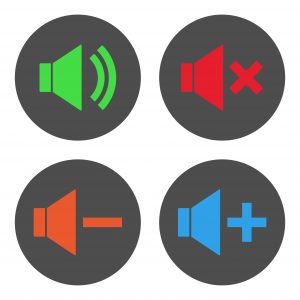 Good news! You can take a hearing test over the phone.
Good news! You can take a hearing test over the phone.
That’s right, the National Institute of Health has provided a grant to support this easy test that you can take in the privacy of your home.
Why should you consider taking the test? Read on…
No one wants to admit they’re losing their hearing, but according to the National Institute on Deafness and Other Communication Disorders (NIDCD) hearing loss is a reality for more than a third of people age 65 to 74, and more than half of those over the age of 75.
These numbers make it one of the most prevalent health issues for older Americans. Only arthritis and heart disease affect more seniors.
Because it’s not a life-threatening condition, hearing loss often goes undiagnosed and untreated; but losing your hearing can have consequences that go far beyond simple inconvenience.
Consequences of hearing loss
Difficulty hearing can affect your ability to perform your job, hinder your social interactions, potentially lead to social isolation, and new studies show that it may also contribute to dementia.
A study jointly funded by the Intramural Research Program of the National Institute on Aging and the NIDCD showed a statistical correlation between hearing loss and the risk of dementia and cognitive decline.
Despite these risks, many people remain in denial about hearing loss. Some people are simply embarrassed, but there are also financial considerations that can discourage even those who are usually very proactive about preventive healthcare.
On average, a pair of hearing aids will set you back somewhere between $2,000 to $8,000, and – unfortunately – this expense is not covered by Medicare and rarely covered by other insurance.
Determining if you have hearing loss
While age-related hearing loss cannot be reversed, early detection can give you a critical advantage with some forms of treatment. The key is to know the signs to look for, and then take appropriate action.
Signs of potential hearing loss are exactly what you would expect:
- Difficulty hearing in situations, often with background noise, that don’t seem to pose a problem for other people
- Consistently turning up the volume on radios, televisions, and other audio devices
- Constantly asking others to repeat themselves during a conversation because you can’t understand what they said
In addition, health and lifestyle history can reveal factors that may contribute to an increased likelihood of hearing loss. Chronic ear infections, certain inner ear diseases, diabetes, and high blood pressure can all have a detrimental influence on your hearing health.
Likewise, certain environmental elements – like exposure to high noise levels (especially over long periods of time) – can negatively impact your hearing health.
Ways to protect yourself
To preserve your hearing, limit the time you spend in loud environments such as you might experience at concerts, sporting events, or around heavy machinery; and use protective ear plugs when possible.
Also, be proactive about getting your hearing checked so that you can seek appropriate care as soon as you detect any level of hearing loss.
How to take the phone test
One simple and easy step you can take today is to visit the National Hearing Test website, which offers a confidential hearing test that is performed over the phone. This convenient and accurate test has been scientifically validated and is supported by a grant from the National Institutes of Health.
Unlike the “tone tests” that you may recall taking when you were a kid or, more recently, in a doctor’s office, this test takes a different approach. Instead of a series of tones, it tests your ability to pick out speech from background noise.
To access the test, you simply go to the website, answer the questionnaire, pay a $8 fee, and then call a phone number and enter the 10-digit access code provided. (For a limited time, the test is free for AARP members!) You will be given a separate score for each ear and told where your hearing falls on a scale from normal to substantially impaired.
Researchers hope that by making it easy for people to take this test from their homes, that more people will take action. Preliminary follow-up research shows that approximately 80% of the people who have taken advantage of this test discover that they have significant hearing loss in one or both ears. While that might seem like a frightening statistic, remember that there are treatments available, and the sooner you know what you’re dealing with, the better off you’ll be.
Related Posts:
Key Tips for Living With Hearing Loss
Positive Aging: Why It Matters and Where to Start
Ageism is Demeaning: How To Address it in a Healthcare Setting
Technology for Seniors: The Good, The Bad and The Ugly
 Connecticut Estate Planning Attorneys Blog
Connecticut Estate Planning Attorneys Blog


